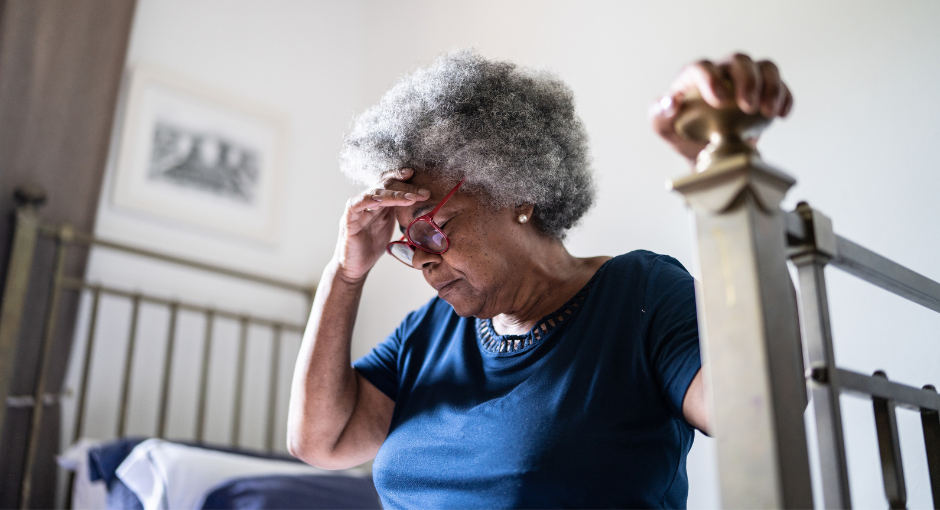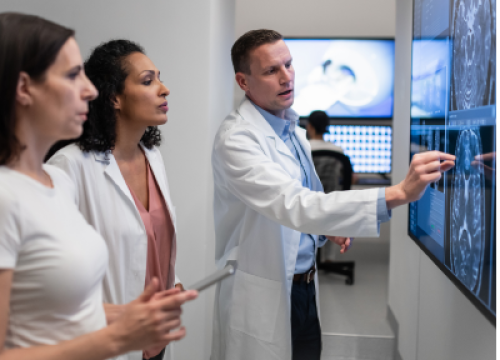What’s Hot in PD? Tips for the Diagnosis and Treatment of Dizziness, Vertigo and Parkinson’s Disease

Though dizziness and vertigo have been commonly reported in the setting of Parkinson’s disease (PD), the diagnosis may be missed and treatment may not be optimal. The terms dizziness and vertigo can be defined in many ways. Most experts agree that the terms refer to a sensation of spinning or whirling and that the sensation has been frequently associated with balance problems. The Parkinson’s Foundation 1-800-4PD-INFO (473-4636) Helpline and PD Conversations have received many questions on the topic of dizziness, vertigo and Parkinson’s disease. In this month’s What’s Hot in PD? column, I will review the topic and summarize the most common management strategies.
Van Wenson and colleagues recently analyzed a consecutive cohort of Parkinson’s disease patients. There were 305 patients and 49% complained of dizziness. Of these cases, 38% had orthostatic hypotension and 8% had benign paroxysmal positional vertigo. There were another 3% suffering from a less classical type of benign paroxysmal positional vertigo. The prevalence of benign paroxysmal positional vertigo in Parkinson’s patients was 5.3% and over 90% of cases improved with treatment (Van Wenson, 2013).
Common Causes and Tips to Cope with Dizziness and Vertigo in PD:
- Orthostatic hypotension: a change in blood pressure when changing position from sitting to standing or from lying to sitting or standing. This condition is treated with hydration (6-8 glasses of water a day), compression stockings, adding salt to the diet and possibly by medications such as Florinef, Midodrine, Droxidopa, or Mestinon. Orthostatic hypotension, which can also be associated with syncope or “passing out,” is the most commonly overlooked cause of dizziness in Parkinson’s disease patients.
- Medication-induced dizziness or vertigo: the most common drugs associated with dizziness or vertigo in PD are dopamine agonists. Medication-induced dizziness is typically treated by weaning the dosage and by slowly discontinuing the offending drug(s). Common drugs associated with dizziness include anticonvulsants, antihypertensives, antibiotics, antidepressants, antipsychotics, pain medications and anti-inflammatory drugs.
- Deep Brain Stimulation (DBS): this surgical procedure can be associated with dizziness or vertigo. The issue usually emerges soon after surgical implantation. It is important to determine if the dizziness is present with the device activated or when the device is in the off position. The first step is to turn off the device and to observe and document if the sensation resolves. If the dizziness resolves, then check the location of the electrode in the brain and consider re-programming the device.
- Benign Paroxysmal Positional Vertigo (BPPV) can be diagnosed using examination maneuvers such as the Dix-Hallpike maneuver. A common complaint of BPPV is dizziness when turning in bed or dizziness lasting only a few seconds. Referral to a physical therapist who is an expert in vestibular rehabilitation can be helpful. Alternatively, teaching the patient to use a maneuver such as the Semont maneuver can be a reasonable approach.
- Migraine headaches: dizziness or vertigo can sometimes be the effect of migraine headaches. In most cases, treatment of the headache can resolve the dizziness. Some experts refer to this entity as migraine-induced vertigo.
- Transient ischemic attack or stroke: sudden onset of dizziness, usually in the presence of other neurological signs, could possibly be a transient ischemic attack or stroke. If a stroke is suspected, you should seek medical attention immediately and undergo appropriate imaging and potentially stroke-related therapies.
Selected References:

-
Van Wensen E, van Leeuwen RB, van der Zaag-Loonen HJ, Masius-Olthof S, Bloem BR. Benign paroxysmal positional vertigo in Parkinson's disease. Parkinsonism Relat Disord. 2013 Dec;19(12):1110-2. doi: 10.1016/j.parkreldis.2013.07.024. Epub 2013 Aug 13. PubMed PMID: 23948517.
- Zeigelboim BS, Klagenberg KF, Teive HA, Munhoz RP, Martins-Bassetto J. Vestibular rehabilitation: clinical benefits to patients with Parkinson's disease. Arq Neuropsiquiatr. 2009 Jun;67(2A):219-23. PubMed PMID: 19547812.
You can find out more about our National Medical Director, Dr. Michael S. Okun, by also visiting the Center of Excellence, University of Florida Health Center for Movement Disorders and Neurorestoration. Dr. Okun is also the author of the Amazon #1 Parkinson's Best Seller 10 Secrets to a Happier Life and 10 Breakthrough Therapies for Parkinson's Disease.
Related Blog Posts

Neuro Talk: Newly Diagnosed

Meet a Researcher Working to Make Adaptive DBS More Effective
